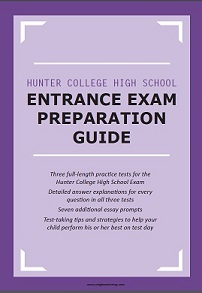Expert Guide to Wechsler Preschool and Primary Scale of Intelligence Fourth Edition
/Unlike most Intelligence Quotient (IQ) tests, the Wechsler Preschool and Primary Scale of Intelligence (WPPSI) is specifically designed to measure the cognitive development of young children.
If you believe your young child may be cognitively gifted, the WPPSI is a great option for assessing her abilities. The test emphasizes child-friendly, developmentally appropriate features, including game-like activities to engage developing minds.
Before you decide if the WPPSI is right for your child, we’ll take an in-depth look at the latest version of the test, the Wechsler Preschool and Primary Scale of Intelligence Fourth Edition.
Why Take an IQ Test?
An IQ test like the WPPSI-IV can give you information that may be helpful as your child enters kindergarten. It can provide insight about her relative strengths and weaknesses, as well as what type of academic program or curriculum would best meet her needs.
You may also wish to share your child’s IQ test results with her teacher and, if the score is especially high, discuss how to adequately challenge and engage your child throughout the school year.
It is important to ensure that gifted children are adequately challenged in order to help them reach their fullest potential and prevent lack of engagement, boredom, or acting out.
When having a very young child tested, there are a few things to keep in mind. Avoid pressuring your child or causing unnecessary academic stress, which is unhealthy and can cause a child to view academics negatively.
Also bear in mind that many experts recommend waiting until a child is at least five-years-old to have them tested. For very young children, IQ tests can be inaccurate due to shyness, boredom, or lack of attention and focus.
Of course, the WPPSI is designed to prevent these problems and be as engaging as possible for young children. If you treat the test as a low pressure assessment of your child’s abilities and remember that your child’s score may be higher in a few years, an IQ test can help you make informed and beneficial decisions about your child’s education.
Wechsler Preschool and Primary Scale of Intelligence Fourth Edition: The Basics
The WPPSI-IV, published in 2012, is designed for children ages 2 years and 6 months to ages 7 years and 7 months. The test is available in paper and pencil only.
For ages 2 years and 6 months to 3 years and 11 months, the core subtests take 30-45 minutes to complete. Children aged 4 years to 7 years and 7 months should spend about 45-60 minutes on the core subtests.
For both of these age groups, the test structure includes three levels of interpretation: Full scale, Primary Index scale, and Ancillary Index scale levels.
The Full scale and Primary Index scales test the same skills, but the Full scale includes additional supplemental subtests, while the Primary Index scale includes only core subtests. The skills measured by these scales include the following:
The Ancillary Index focuses on the following optional tests, used in specific clinical situations:
Subtests are slightly different for the two age bands, with older children completing more subtests and activities. The test features short, simplified directions and includes demonstration, sample, and teaching items for clarity.
Wechsler Preschool and Primary Scale of Intelligence Fourth Edition Question Types
We will focus here on the question types included in the Full scale on the WPPSI-IV.
WPPSI-IV: Ages 2:6-3:11
Children in this age band are tested in three major areas: Verbal Comprehension, Visual Spatial, and Working Memory.
Verbal Comprehension:
Visual Spatial:
Working Memory:
WPPSI-IV: Ages 4:0-7:7
Older students are tested in five areas of cognitive ability: Verbal Comprehension, Visual Spatial, Fluid Reasoning, Working Memory, and Processing Speed.
Verbal Comprehension:
Visual Spatial:
Fluid Reasoning:
Working Memory:
Processing Speed:
On all Processing Speed subtests, students use an ink dauber to indicate correct answers. The tests are as follows:
The pages are presented in both a structured arrangement of objects and a random arrangement. This provides useful information about how your child’s ability varies with different modes of presentation.
How to Prepare for the Wechsler Preschool and Primary Scale Fourth Edition
Many experts recommend avoiding the word “test” with especially young children. So how can you help your child prepare for an assessment like the WPPSI-IV?
Practice test concepts using activities and games, such as completing patterns, identifying pictures, and working with puzzles and blocks. You can also spend some time using vocabulary flash cards, identifying similarities and differences, and playing memory games.
Ideally, you should begin practicing about six months ahead of time. However, you want to spend at least one month familiarizing your child with the types of questions and activities she will encounter on her assessment.
You can also work on test practice questions with your child. Simply present them in a fun, encouraging manner, rather than drilling your child or being overly critical of incorrect answers. Having your child answer test questions with multiple people can help ensure that she does not become shy or confused with the test administrator on test day.
With the information and tips provided here, you’re on your way to helping your child perform her best on the Wechsler Preschool and Primary Scale of Intelligence Fourth Edition!


